-
The Science4Pandemics Project Estimates that 20.8% of European Adolescents Are Hesitant to Get Vaccinated
A citizen science study conducted as part of the European project assesses vaccine hesitancy and associated factors among adolescents and parents in Spain, Italy, Portugal, and Poland.
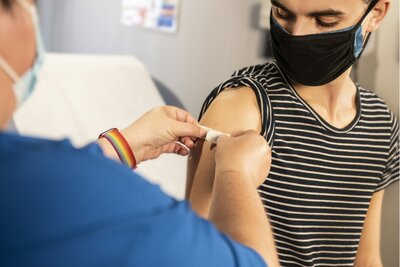
-
i4KIDS Project, led by one of the principal investigators of Sant Joan de Déu Research Institute awarded with the National Research Prize
The i4KIDS Pediatric Innovation Hub at SJD Barcelona Children's Hospital, led by Arnau Valls, investigator of the Healthcare Technology Innovation Research Group at the Sant Joan de Déu Research Institute (IRSJD), has been selected for the National Prize for the Promotion of Knowledge Transfer 2024.
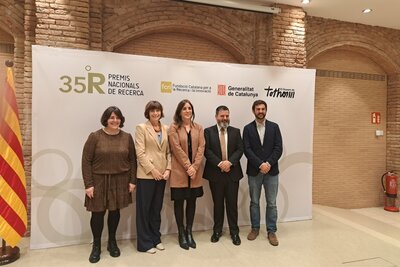
-
Six innovative projects in paediatric health start their acceleration with Impact4kids
The Impact4kids acceleration program, announced at the i4KIDS Pediatric Innovation Day in Barcelona last November, received a total of 73 proposals from startups, research centers, and emerging companies in the United States (44%) and Europe (56%).
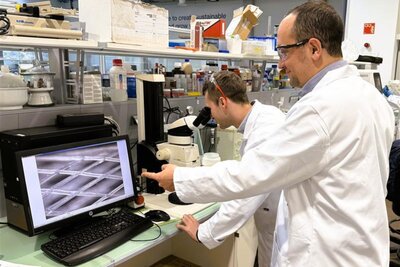
-
Nanomedicine and Rare Diseases: Advances and Collaboration at the Nano Rare Diseases Day 2025
Experts in nanomedicine from various fields gathered on March 7th, to present the latest advancements in the diagnosis and treatment of rare diseases.
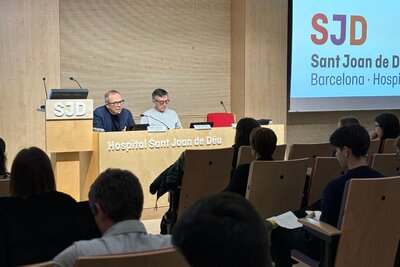
-
Adolescent mental health at the center of the Science4Pandemics closing event

-
New Evidence on the Association Between Endometriosis and Traumatic and Stressful Experiences
An international study involving Marina Mitjans, a researcher at the Sant Joan de Déu Research Institute (IRSJD), the Institute of Biomedicine of the UB (IBUB), and the Biomedical Research Networking Center in Mental Health (CIBERSAM), has found new evidence linking traumatic experiences and stressful events to endometriosis.

-
Adolescent mental health at the center of the Science4Pandemics closing event
The Patient Participation in Research Area of the Sant Joan de Déu Research Institute organized a hybrid event on January 15 with the aim of raising awareness about mental disorders in adolescents and promoting tools to care for mental health during this critical stage.
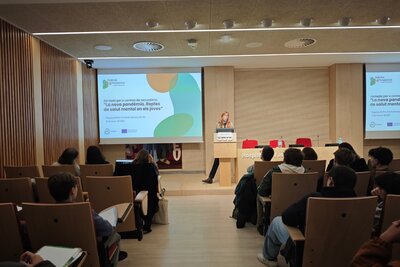
-
An innovative genetic analysis by Sant Joan de Déu and CNAG successfully diagnoses 23 children with neuromuscular diseases
The research, published in the scientific journal European Journal of Human Genetics, has been enabled by SolveRD, a project funded by the European Commission, in which Hospital Sant Joan de Déu and the Centro Nacional de Análisis Genómico (CNAG) participate

-
Gate2Brain Receives EMA Orphan Drug Designation for Its Groundbreaking Pediatric Cancer Treatment
Gate2Brain, has reached a major milestone in the fight against pediatric brain tumors by obtaining Orphan Drug Designation (ODD) from the European Medicines Agency (EMA) for its innovative product, G2B-002.

